Surname Analysis: Where Did Richard’s Fellow Passengers Come From?
A project at University College London (UCL) took 1881 British census data and created an online surname density viewer that let you see the distribution of a surname in Britain in 1881. (UPDATE: Unfortunately, they removed it, but I saved the screenshots below.) Of course, 1881 is two centuries after the period we are interested in, but huge differences in the commonness of a surname from place to place were still obvious in 1881. The data show how common a name was within a postal district (the equivalent of an American zip code). Others have online tools that do this, but UCL did it better. Using postal districts instead of counties gives us finer resolution. Also, commonness for UCL isn’t just a count of how many people in the district had a given surname. A simple count makes all surnames more popular in big districts and less popular in small ones. UCL divided the count by the population and used the percentage of people in a district who had the surname, not the count of people, to measure commonness, and they color coded each district accordingly.
So, here are the surnames of those who may have been with Richard while he was still in England:
- Ramsden (partner of John Parkins, not transported himself)
- Maude
- Askee (a form of Askew, see below)
- Parkinson
- Watterworth
- Foster
- Brafitt
A couple of notes about these surnames:
ASKEE: There is no ASKEE in the census, and ASKIE only shows up in one neighborhood in London, but there is just enough data for ASKEY and ASKE to show that ASKEE was a Yorkshire-area pronunciation of ASKEW. (Besides that, we know from Maryland records that he was known in Maryland as Richard Askew.)
WATTERWORTH: The 1676/77 register clearly spells it Walterworth, but a clerk in the Maryland court must have misread the name Watterworth on the warrant when he copied it into the register. Two tall loops with a crossbar for “tt” were read as “lt”, which is an easy mistake to make for someone who has never heard of either name but knows the name Walter. But there was no surname WALTERWORTH in Britain in the 1881 census. The name WATERWORTH is a surname in the census, and church records from two centuries earlier spelled it both WATERWORTH and WATTERWORTH. British surname dictionaries say that other spellings of this name included WADDEWORTH, WADDESWORTH, and the poets’ names Henry WADSWORTH Longfellow and William WORDSWORTH. All of these names meant the same thing: a person from Wadsworth Township in a place called Halifax Parish, in the West Riding of Yorkshire.
BRAFITT: This uncommon name has variant spellings Brafitt, Breffit, a or e, f or ff, t or tt, etc. The Brafitt spelling did not show up in the 1881 census, but Breffit did. Maybe that will be good enough.
Every English region has a mixture of unique, local surnames and regionally, or even nationally, popular names. The rare, local surnames are the most informative, of course. They have the sharpest focus. Of course, a person with a sharply localized surname could move to another place, but if several sharply localized names all point to the same small region, that’s probably the place you’re looking for.
Here is a map of the traditional counties of England for reference:
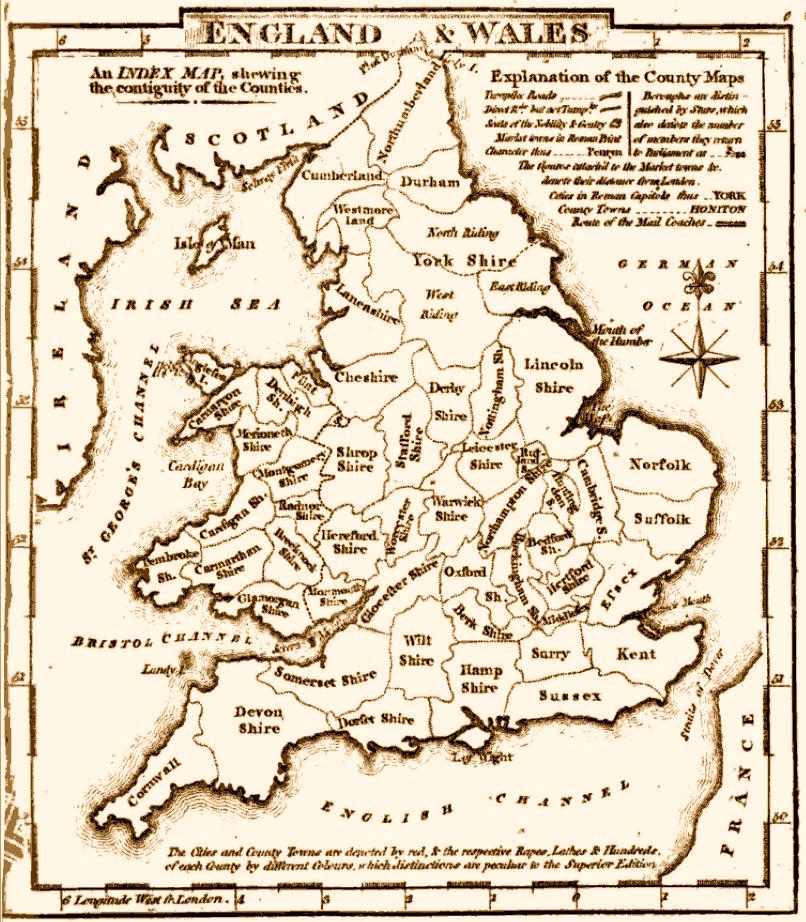
Traditional English Counties including the Ridings of Yorkshire
And here are the surnames shown in order from rarest and most-localized to most common and widespread (border lines represent 1881 postal districts, not counties):
Ramsden
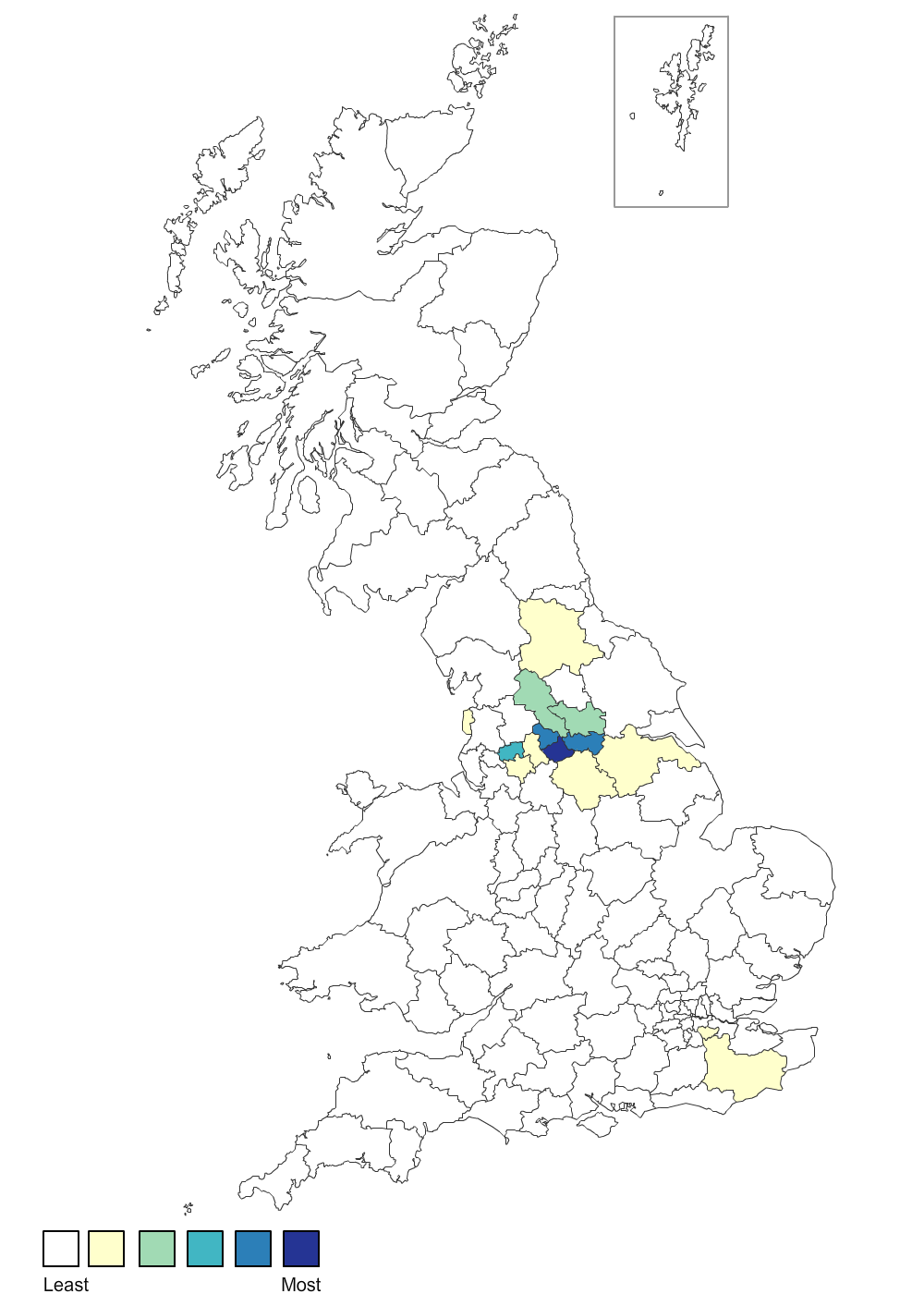
Maude
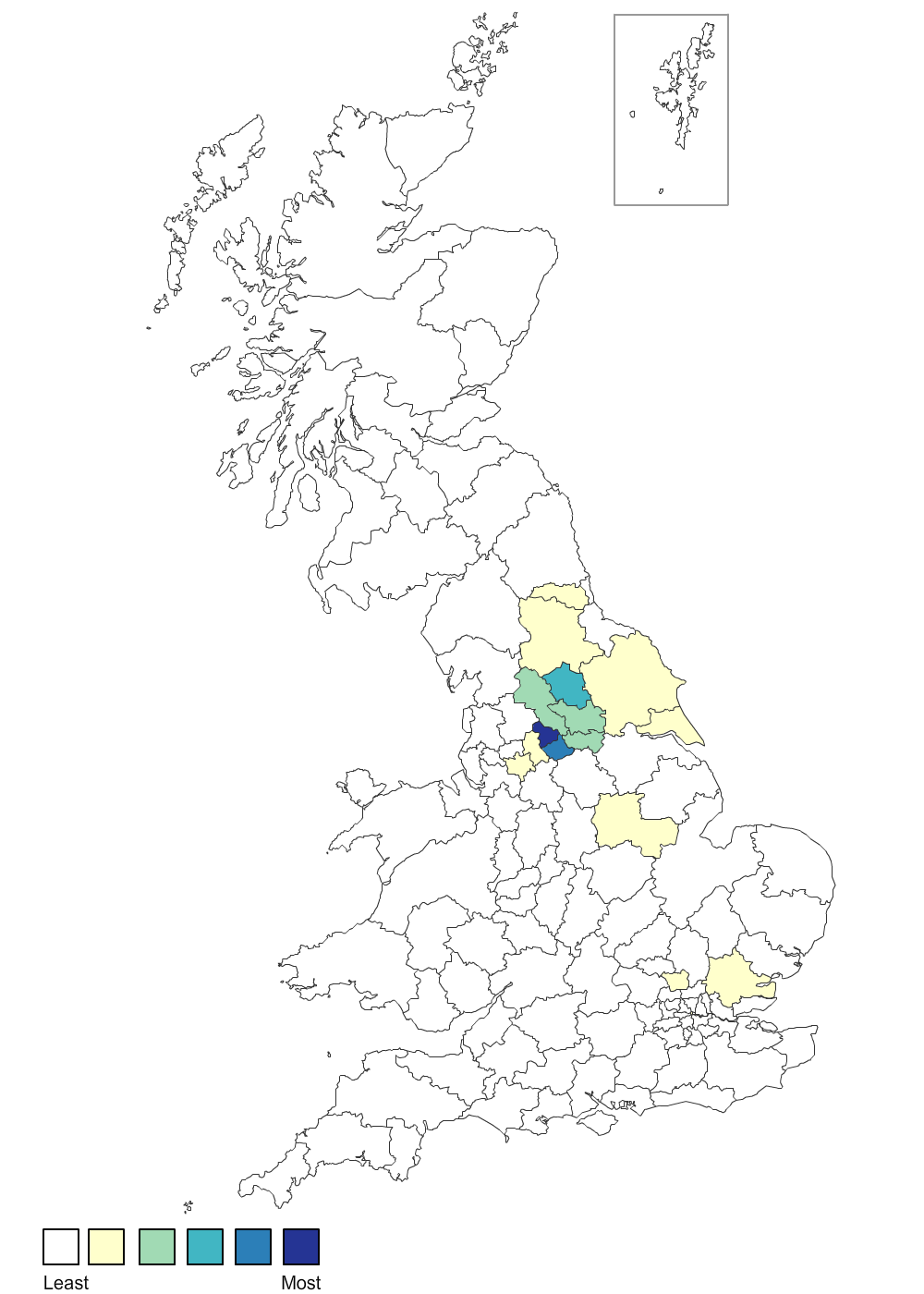
Waterworth
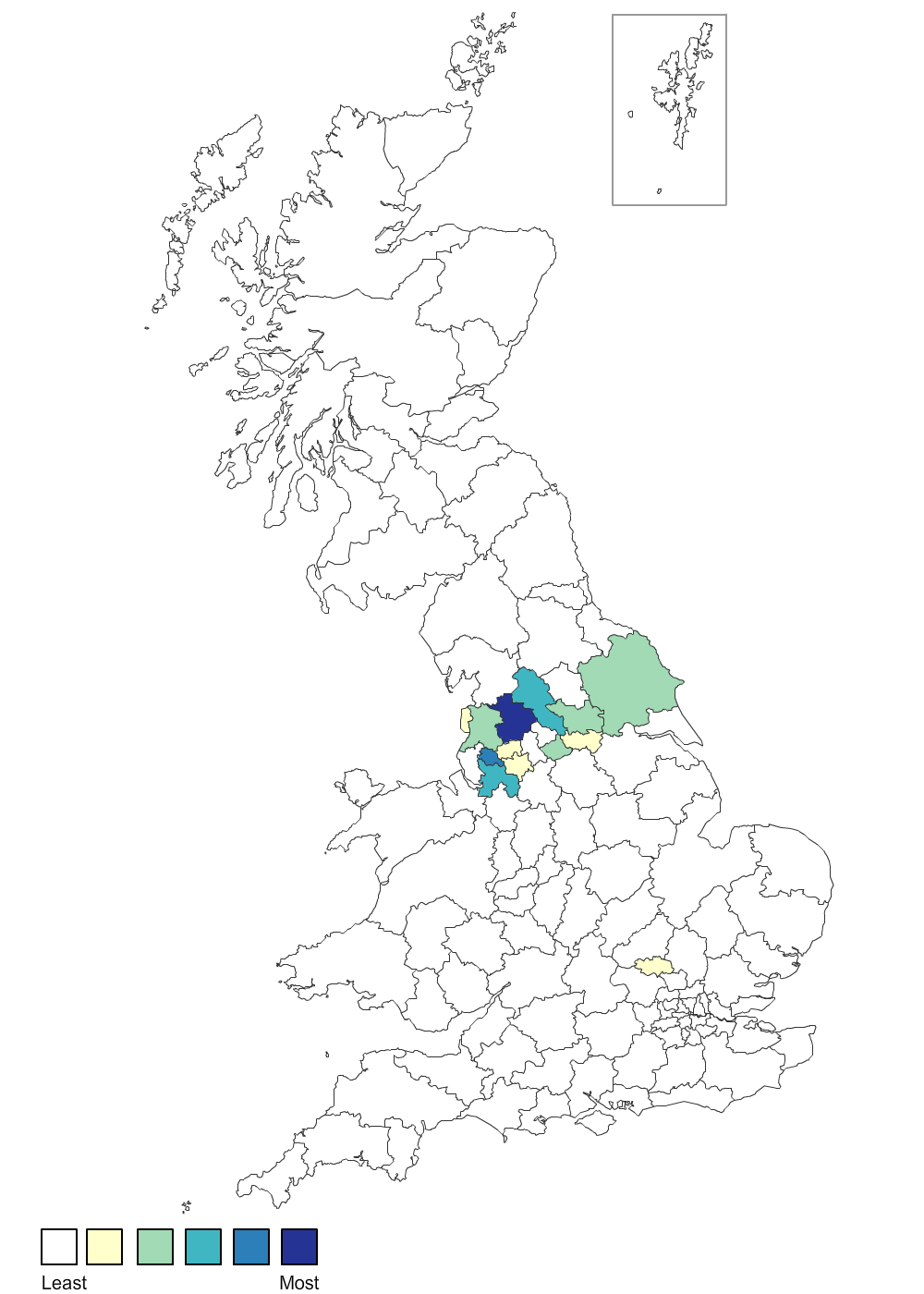
Breffit
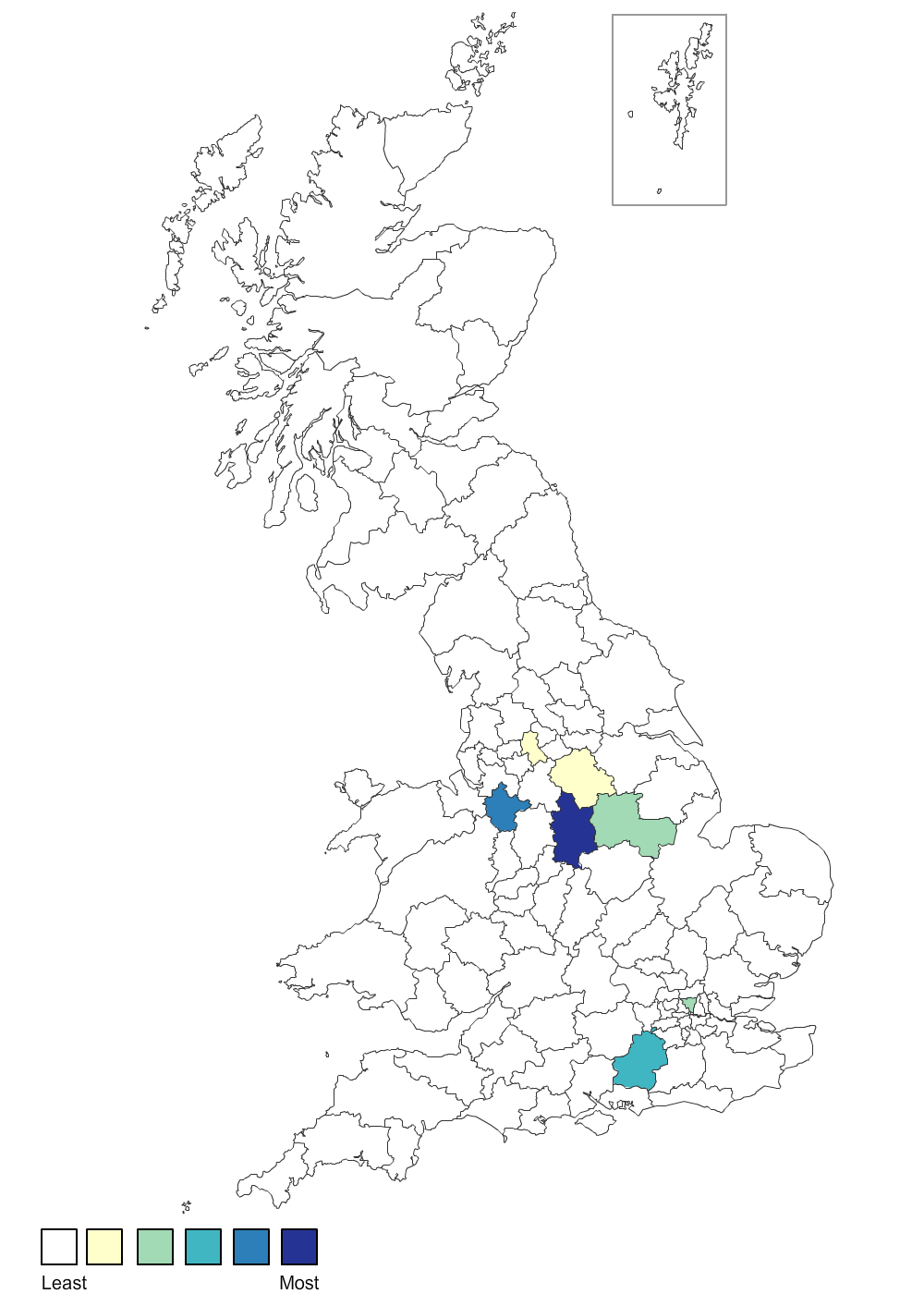
Parkinson
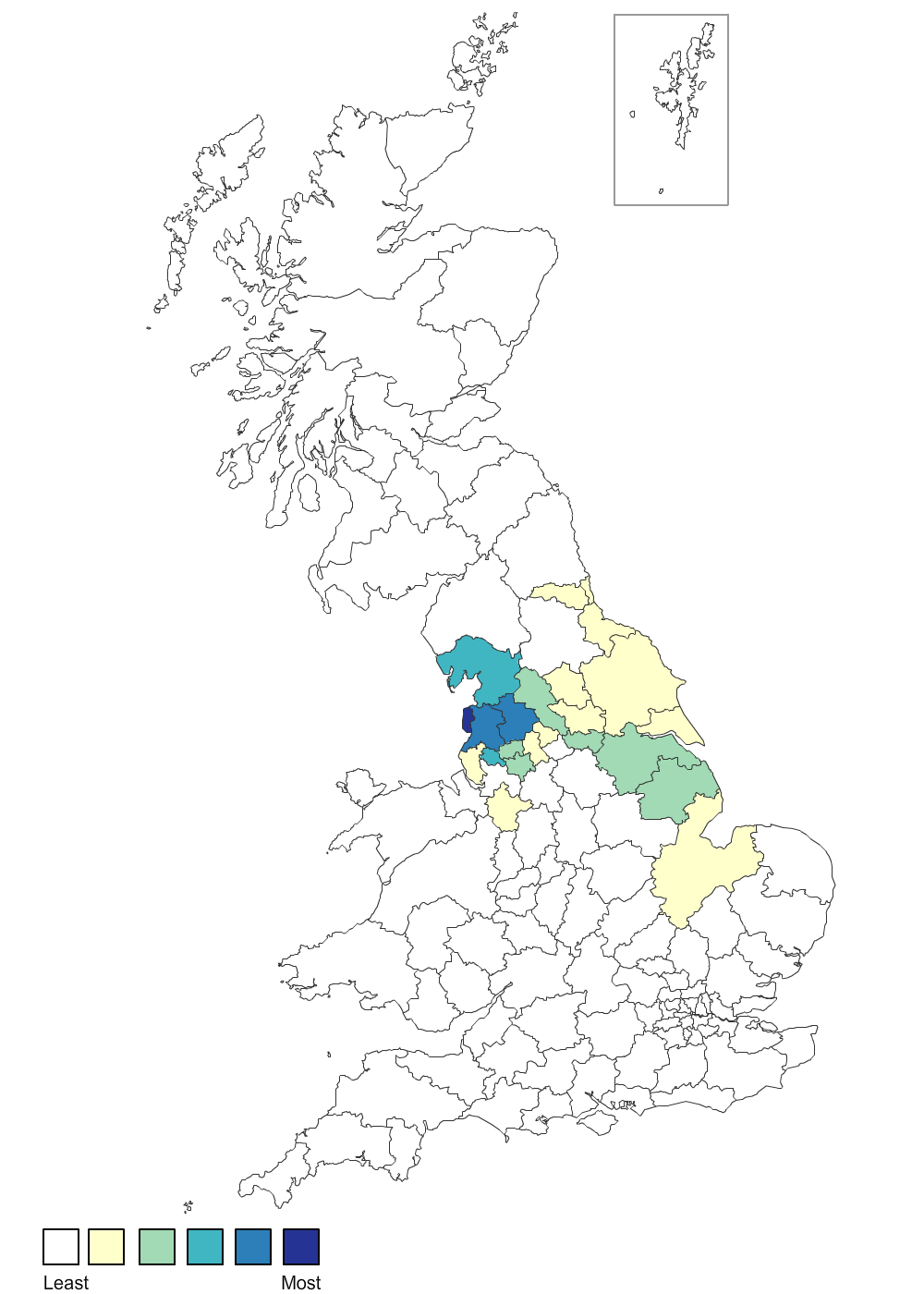
Askew
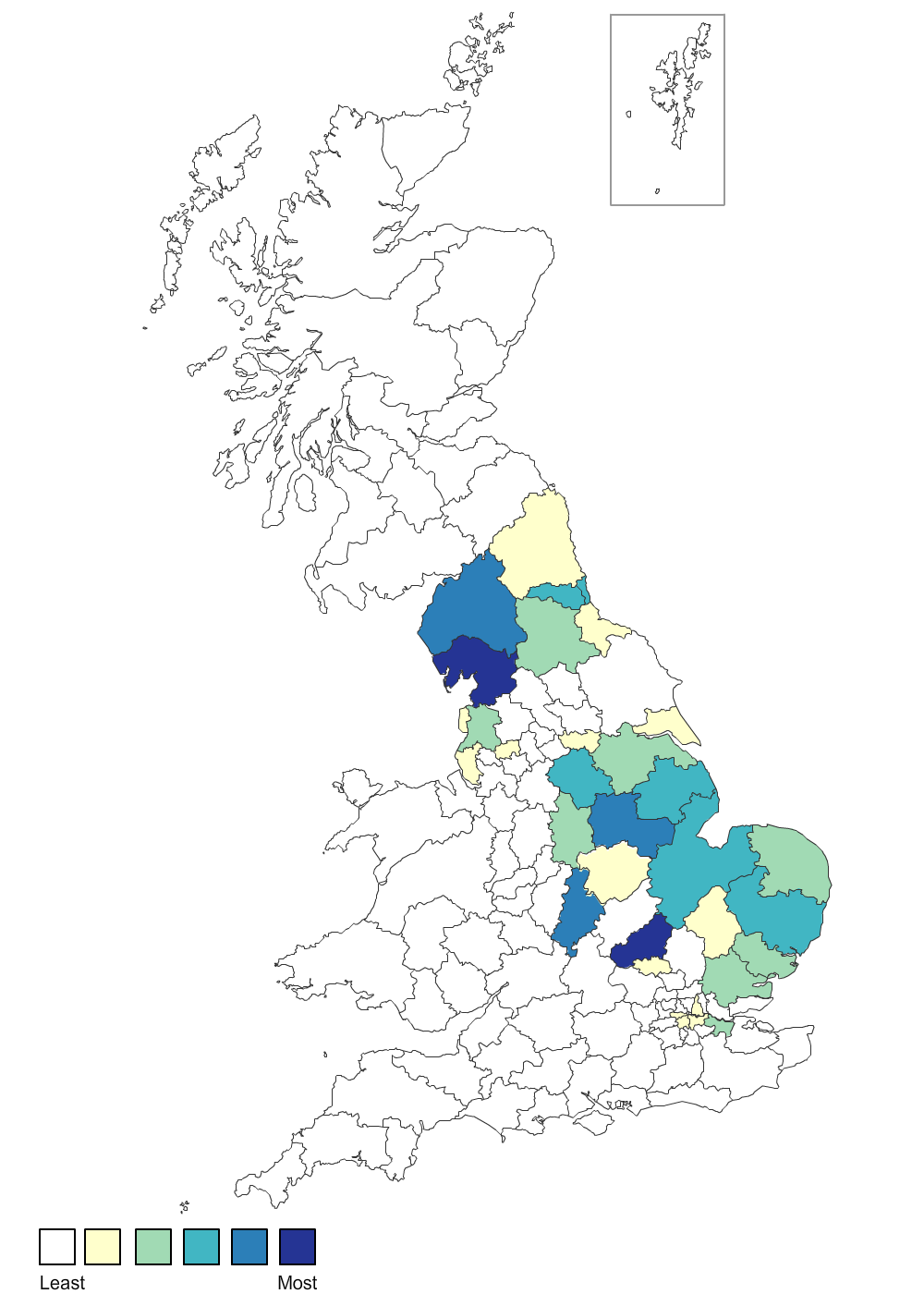
The maps above suggest that if we wanted to search for the origins of Richards’s fellow passengers, we would not start our search in a different area for each surname, and we wouldn’t even bother looking at the region around Bristol in the southwest that was the homeland of most Chesapeake colonists. These surname maps strongly suggest that most or all of the people transported with Richard Parkins in 1674 were from somewhere near the West Riding of Yorkshire.
The ASKEW name looks like an exception. Askew is a common name in a band running up the east side of England, but with a strange gap at Yorkshire. It’s not that the name wasn’t there—it was—but that the Yorkshire pronunciation (more /askü/ than /askyu/), produced different spellings. There is no ASKEE surname in the census, but ASKEY partially fills in the ASKEW gap. Askee and Askew were the same name in the 1600s, like Perkins and Parkins, but the ASKEE spelling hints at a Yorkshire origin matching the ASKEY map below.
(And FOSTER is shown here for completeness, but it is too common to be of much help narrowing the search other than to suggest that Northern England was more likely than the South and that, once again, the Bristol area was unlikely.)
Askew

Askey
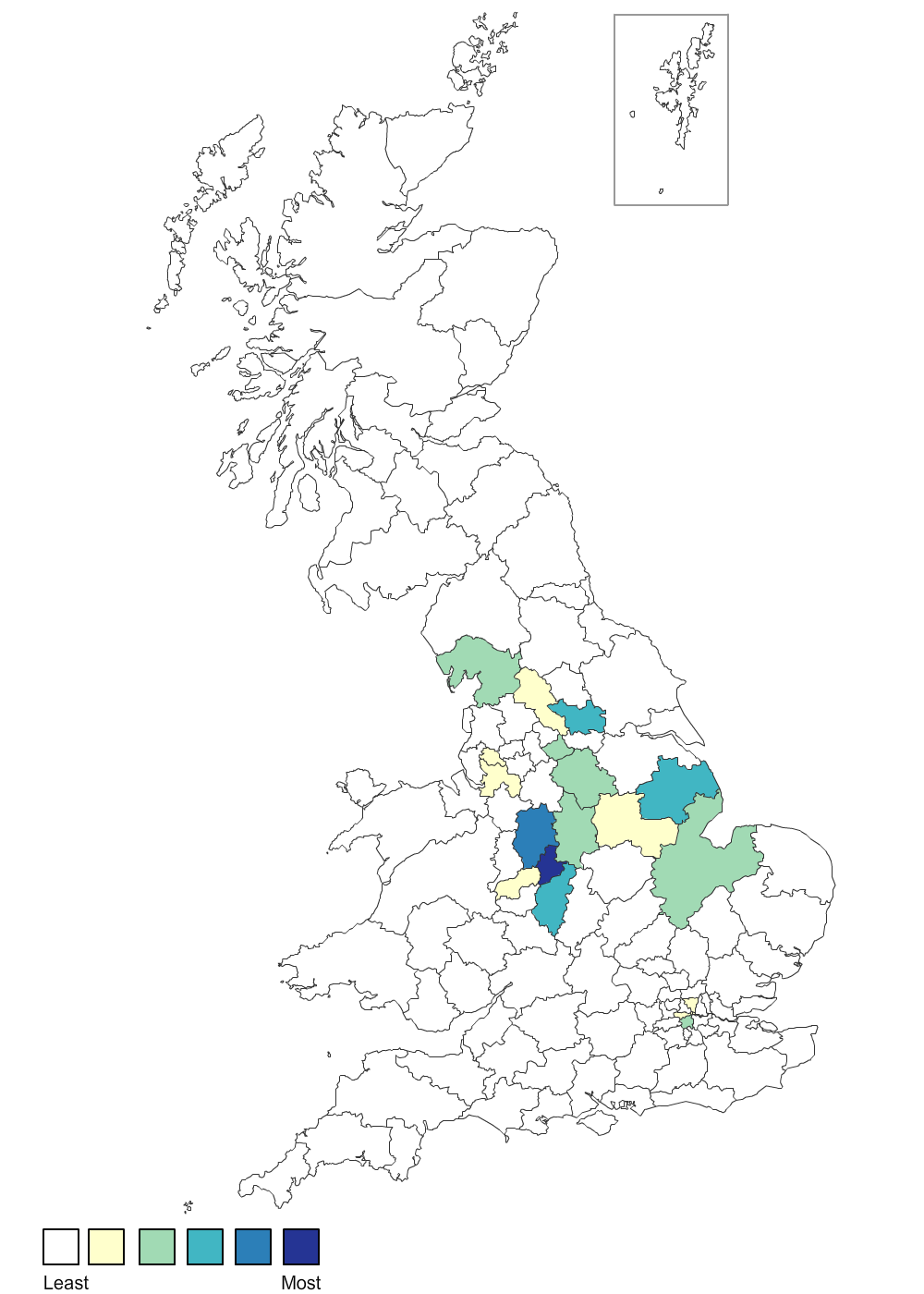
Foster
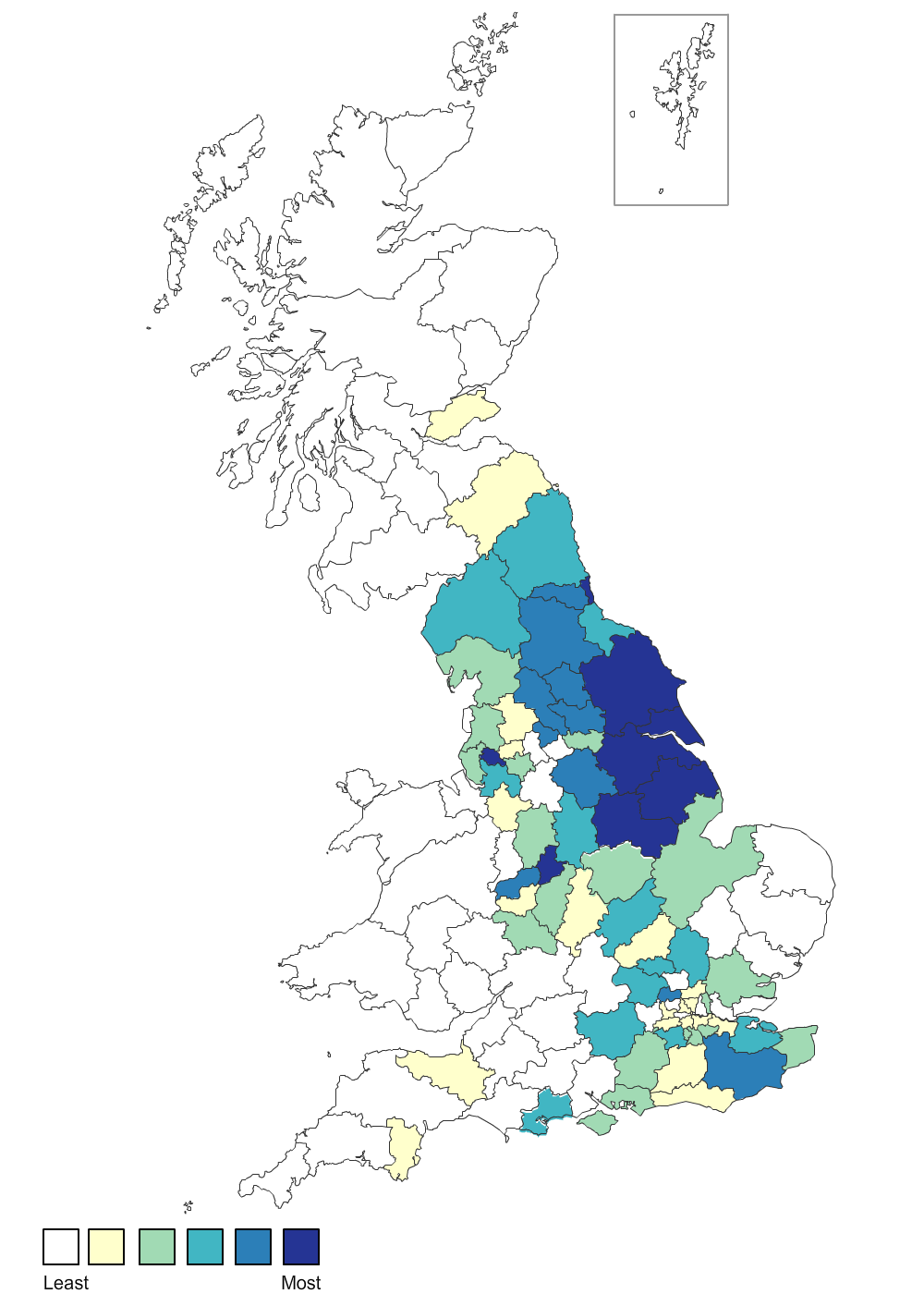
Multiple, rare surnames tightly focused on the same small area tell us that most or all of the people transported with our Richard Perkins were probably from the West Riding of Yorkshire. And it cannot be a coincidence that the surname maps tell us that Richard Parkins’s fellow passengers probably came from the only place in the world where a completely different search, a document search, found John Parkins and George Ramsden together. And that John Parkins and George Ramsden were together there in the West Riding of Yorkshire in the same decade these other people were transported to Maryland in a deal that involved two merchants of England named John Parkins and George Ramsden.
This was a group of people from somewhere in (or near) the West Riding of Yorkshire, and our ancestor, Richard Parkins, was one of them.
And if most or all of the people involved in the 1674 transportation deal were from the same place, John Parkins was probably an older relative of Richard Parkins. It was probably no coincidence that they had the same surname.
These are the surname maps for Perkins and its most common spelling variants:
Perkins
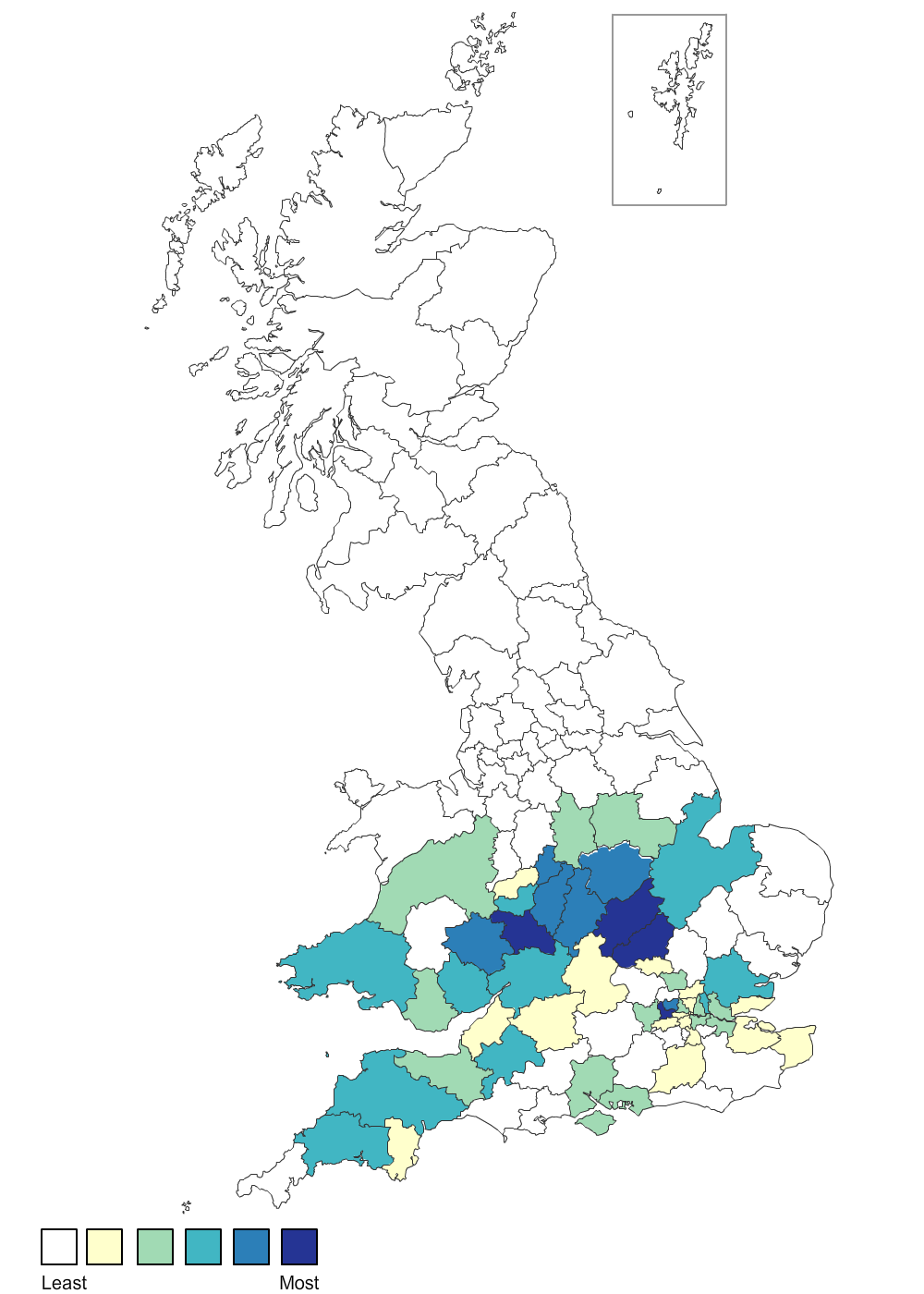
Parkins
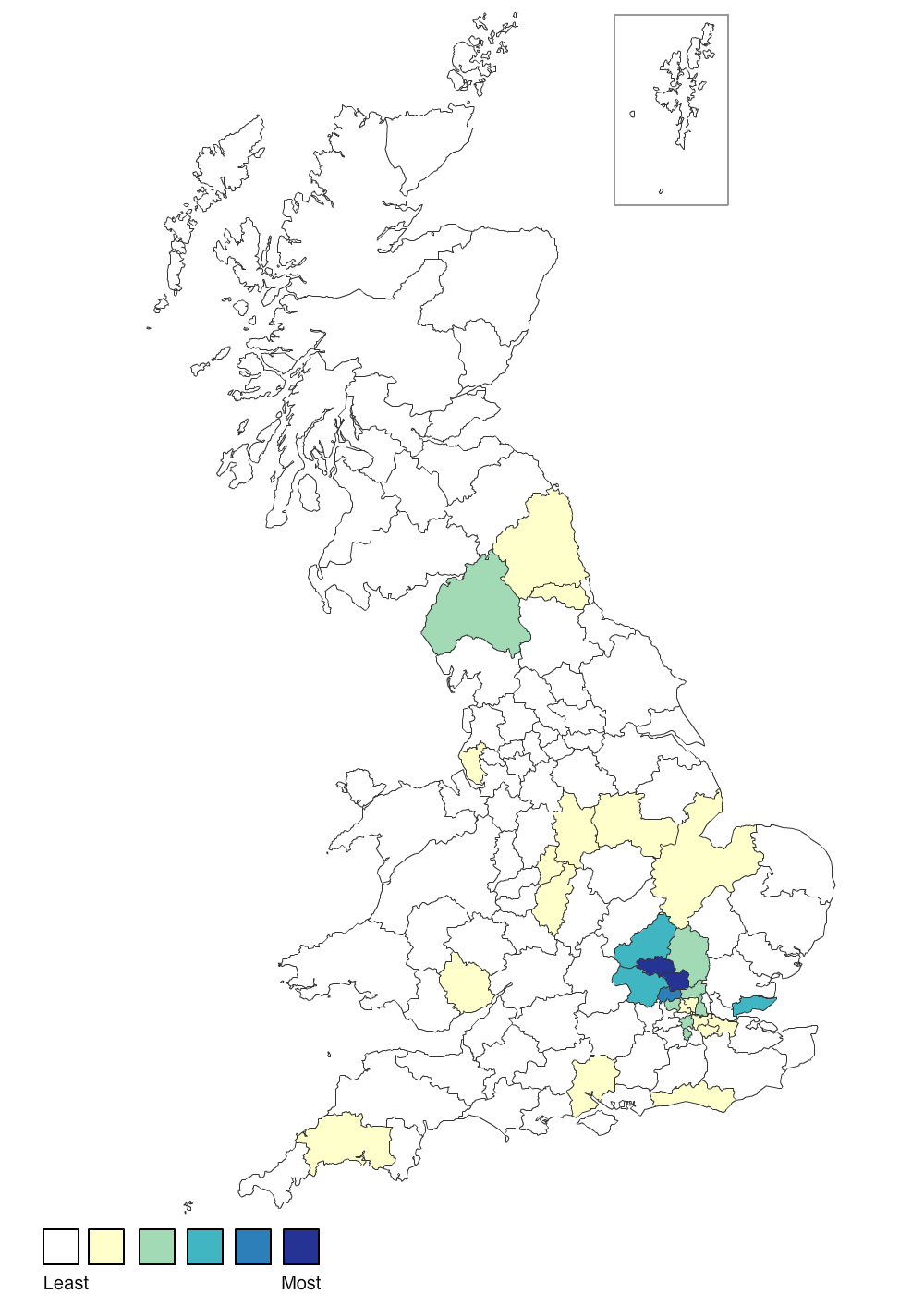
Parkin
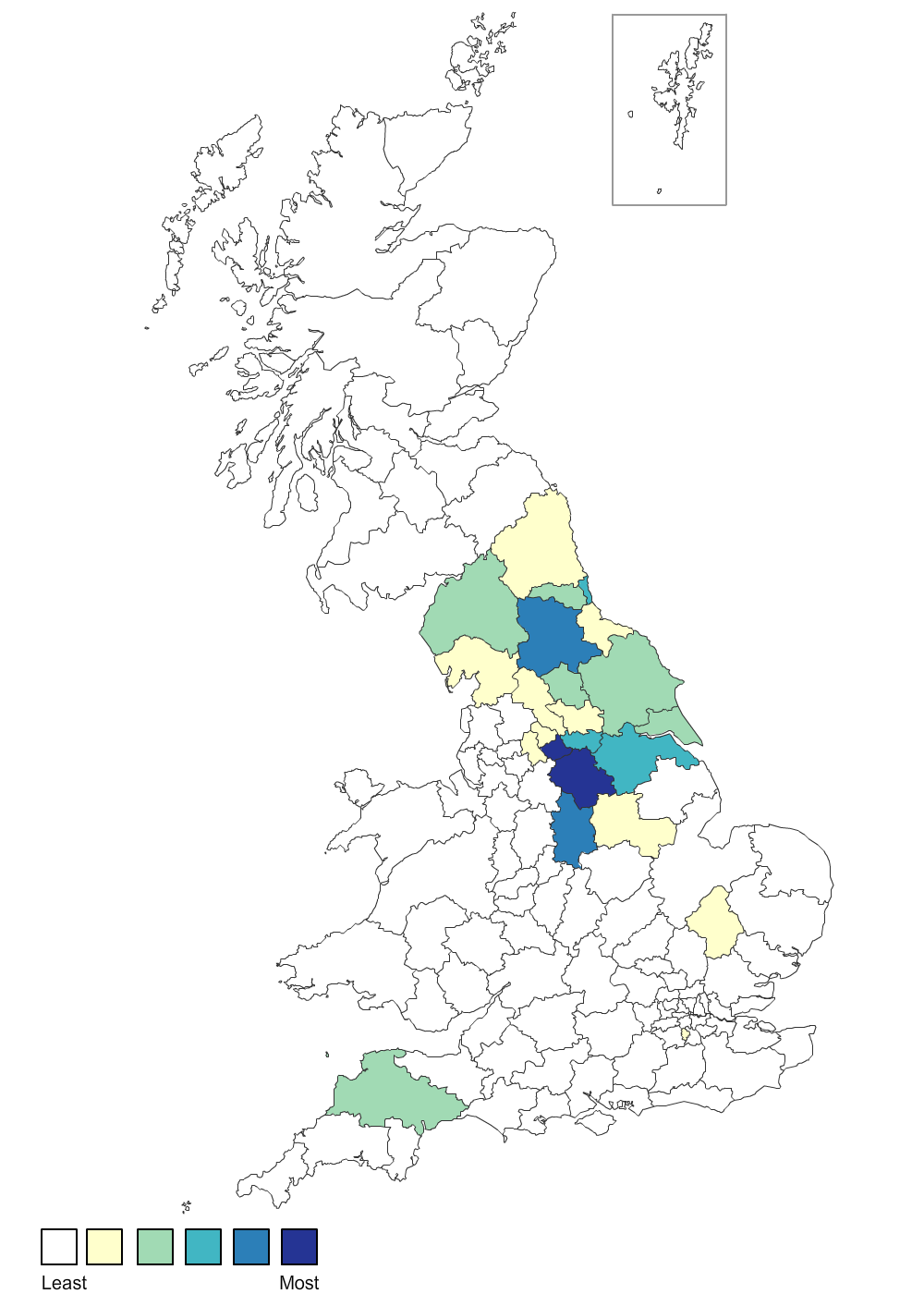
The name Perkins is very common in the “Home Counties” of southern England but uncommon in Yorkshire. Parkins seems to be the way Londoners spelled Perkins. In Yorkshire, the name was usually spelled Parkin. And the records search for George Ramsden with John Parkins that found only Yorkshire records showed that the name of the man with George Ramsden was actually John Parkin, not Parkins—same name but Yorkshire style.
Our Richard Perkins I of Maryland may have been Richard Parkin from the West Riding of Yorkshire.

